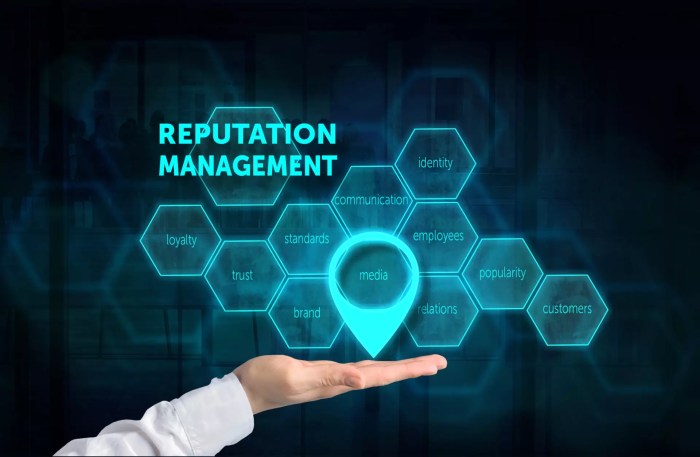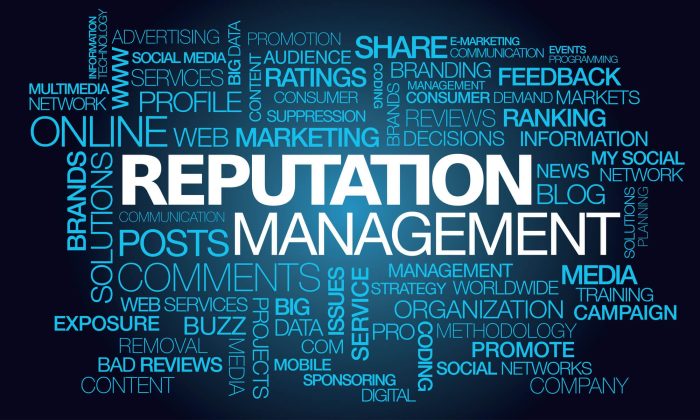Online Reputation Management is the key to success in today’s digital world. Whether you’re an individual or a business, your online reputation can make or break you. Let’s dive into the strategies and tools that can help you maintain a positive image and handle any crisis that comes your way.
Introduction to Online Reputation Management
In today’s digital age, Online Reputation Management (ORM) is crucial for individuals and businesses to control and influence how they are perceived online. With the vast amount of information available on the internet, managing one’s online reputation can significantly impact personal and professional success.
Importance of Online Reputation Management
Online Reputation Management is essential because it allows individuals and businesses to:
- Shape public perception: ORM helps in shaping how others view you or your brand online, ensuring that the information available accurately reflects your values and capabilities.
- Build trust and credibility: A positive online reputation can build trust with potential clients, customers, or employers, establishing credibility and reliability.
- Manage crisis situations: ORM can help in addressing and mitigating negative information or reviews that may harm your reputation during a crisis.
- Enhance visibility: By actively managing your online presence, you can increase visibility and reach a wider audience, leading to more opportunities for growth and success.
Strategies for Effective Online Reputation Management

Maintaining a positive online reputation is crucial in today’s digital age. Proactive strategies can help you stay ahead and protect your brand image.
Proactive Strategies
- Monitor your online presence regularly to stay informed about what is being said about your brand.
- Create high-quality content that showcases your expertise and values, helping to shape a positive online reputation.
- Engage with your audience on social media and respond to feedback and comments promptly.
- Collaborate with influencers and industry leaders to enhance your credibility and reach a wider audience.
Reactive Strategies
- Address negative feedback or comments promptly and professionally to show that you value customer feedback.
- Apologize and take responsibility for any mistakes or issues that may have occurred, demonstrating transparency and accountability.
- Seek to resolve any conflicts or misunderstandings with dissatisfied customers to show that you are committed to customer satisfaction.
- Utilize online reputation management tools to help monitor, track, and respond to any negative content effectively.
Role of Search Engine Optimization ()
Search engine optimization plays a critical role in online reputation management by ensuring that positive content ranks higher in search engine results, pushing down any negative content. By optimizing your website and content for relevant s, you can control the narrative and shape how your brand is perceived online.
Hey fam, let’s talk about the importance of budgeting for families. Managing your money wisely is crucial to ensure you can provide for your loved ones without stress. Check out this awesome resource on Budgeting for Families to learn some tips and tricks on how to make your finances work for you!
Tools and Platforms for Online Reputation Management
In today’s digital age, monitoring online reputation is crucial for businesses and individuals alike. Utilizing the right tools and platforms can make this task more manageable and effective.
Hey there, fam! Let’s talk about managing your money like a boss with Budgeting for Families. It’s all about making sure your cash flow is on point, so you can handle those family expenses like a pro. From groceries to bills, having a solid budget plan can help you keep track of where your money is going and make sure you’re not overspending.
So, grab your calculator and start crunching those numbers!
Popular Tools for Monitoring Online Reputation, Online Reputation Management
- Google Alerts: A free tool that notifies users when their brand is mentioned online.
- Brand24: Monitors social media, news sites, blogs, and more for brand mentions.
- Reputology: Focuses on monitoring and managing online reviews for businesses.
- Hootsuite: Allows users to track social media mentions and engage with customers.
Comparison of Online Reputation Monitoring Tools
- Features: Each tool offers unique features such as sentiment analysis, real-time alerts, and competitor tracking.
- Effectiveness: The effectiveness of a tool depends on the specific needs and goals of the user.
- Pricing: Some tools are free, while others come with a subscription fee based on the level of service required.
Benefits of Using Social Listening Tools
- Social listening tools help businesses understand customer sentiments and trends.
- By monitoring social media conversations, companies can respond to feedback in real-time.
- Identifying and addressing negative feedback promptly can help improve brand reputation.
Online Reputation Crisis Management
In the fast-paced world of the internet, a reputation crisis can strike at any moment, causing damage to an individual or company’s brand. It is crucial to have a solid plan in place to effectively manage such a crisis and minimize the negative impact it can have. Transparency and authenticity play a key role in navigating through a reputation crisis, as they help build trust with the audience and show a genuine commitment to addressing the issues at hand.
Steps to Manage a Reputation Crisis Effectively
- Assess the Situation: Quickly gather all available information to understand the scope and severity of the crisis.
- Communicate Openly: Be transparent with your audience and stakeholders about the situation, acknowledging any mistakes and outlining steps to address them.
- Take Swift Action: Implement a plan to address the crisis promptly, whether it involves issuing a public apology, rectifying mistakes, or taking corrective measures.
- Monitor and Respond: Keep a close eye on the situation as it unfolds, responding to feedback and addressing concerns in a timely manner.
- Evaluate and Learn: After the crisis has been resolved, conduct a thorough review of the incident to identify areas for improvement and prevent similar issues in the future.
Successful Examples of Reputation Crisis Management
Johnson & Johnson’s handling of the Tylenol poisoning crisis in 1982 is often cited as a prime example of effective reputation management. The company acted swiftly, recalled the product, and implemented tamper-proof packaging to reassure consumers of their commitment to safety.
Importance of Transparency and Authenticity
- Transparency builds trust: By being open and honest about the crisis, you show your audience that you have nothing to hide and are committed to resolving the issue.
- Authenticity resonates with people: Genuine responses and actions during a crisis can help humanize your brand and connect with your audience on a deeper level.
- Long-term impact: Demonstrating transparency and authenticity during a reputation crisis can not only help you weather the storm but also strengthen your brand’s reputation in the long run.
Legal Considerations in Online Reputation Management

In the digital age, protecting your online reputation involves more than just managing what others say about you. Legal considerations play a crucial role in ensuring that your reputation remains intact and safeguarded. From defamation to privacy laws, understanding the legal implications of online reputation management is essential for individuals and businesses alike.
Defamation and Privacy Laws
Defamation laws protect individuals from false statements that harm their reputation. Whether it’s libel (written defamation) or slander (spoken defamation), being aware of what constitutes defamation is key to avoiding legal trouble. Privacy laws, on the other hand, safeguard personal information from being shared without consent. It’s important to respect privacy rights when managing online reputations to avoid legal repercussions.
- Defamation can occur through social media posts, reviews, or comments that contain false information damaging to someone’s reputation.
- Privacy laws vary by jurisdiction, so it’s crucial to understand the regulations in your area to avoid violating someone’s privacy rights.
- Consulting with a legal professional can help navigate defamation and privacy laws effectively.
Role of Legal Professionals
Legal professionals play a vital role in handling online reputation issues, especially when legal action is necessary to protect one’s reputation. From issuing cease and desist letters to pursuing defamation lawsuits, lawyers specialized in online reputation management can help individuals and businesses uphold their reputation within legal boundaries.
- Legal professionals can assess the credibility of defamation claims and provide guidance on the best course of action to take.
- They can also assist in removing defamatory content from online platforms through legal channels.
- Hiring a reputable attorney with experience in online reputation management can make a significant difference in safeguarding your reputation.
Tips for Protecting Your Online Reputation Legally
Navigating the legal landscape of online reputation management can be challenging, but there are proactive steps you can take to protect your reputation within legal boundaries. Here are some tips to help you safeguard your online image without crossing legal lines:
- Regularly monitor your online presence to identify and address any potentially harmful content.
- Seek permission before sharing any personal information or content related to others to respect privacy rights.
- Respond promptly and professionally to any negative feedback or reviews to mitigate reputational damage.
- Consider implementing a social media policy that Artikels guidelines for online behavior to prevent legal issues.
- Consult with a legal professional specializing in online reputation management to create a proactive legal strategy.
